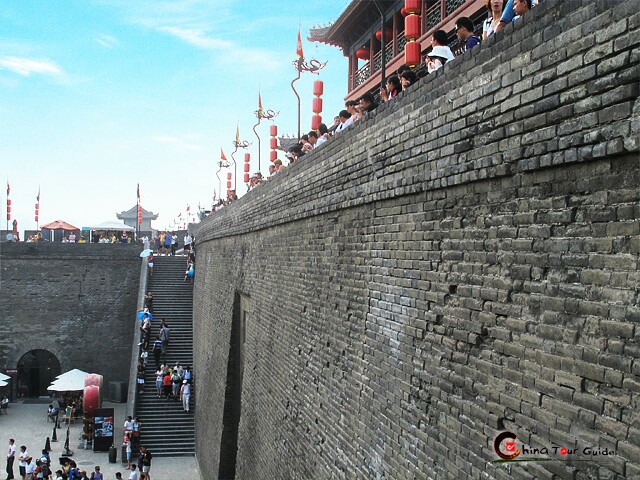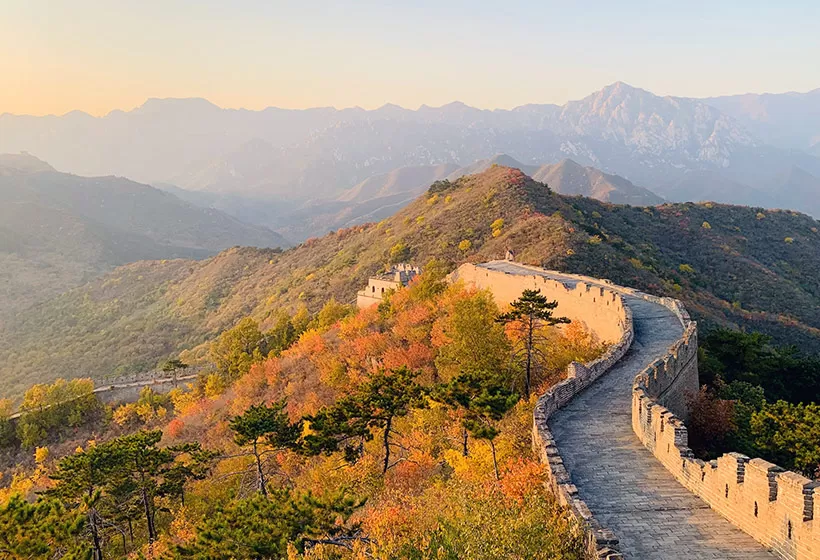20 Good Facts For Deciding On China Tour Sites
Wiki Article
Top 10 Tips For Shopping In Street Markets In China
1. Arrive EarlyTip: Visit markets early in the morning as vendors are setting up and may offer better bargains to get their first sale.
Pro: Early shopping provides an increased selection of goods and better bargaining opportunities.
Cons: You need to wake up early. This may not work for all travel schedules.
2. Bring Cash
Tips: The majority of street vendors are more comfortable with cash, but mobile payment options such as WeChat Pay or Alipay are growing in popularity.
Cash payment can ease transactions and can give you more leverage during negotiations.
Contraint: Carrying cash can increase the chance of theft and loss.
3. Learn Basic Mandarin
The most effective way to learn is by learning phrases like "Zhegeduoshaoqian?" ("How much is that?") It's easier to communicate by understanding phrases such as "Zhege duoshao Qian?" (How much is this?) or "Pianyi youdian ba?" ("Can you make it more affordable?") Effective communication is important.
Pro: Shows respect for the local culture and helps build rapport with vendors.
Con: Limited vocabulary might still leave room for misunderstandings.
4. Inspect Goods Carefully
Tip: Be sure to check all items thoroughly to ensure that there are no flaws and inconsistencies.
Pro: Ensures that you get what you paid for and helps avoid disappointment in the future.
Cons: Time-consuming, and vendors may get annoyed.
5. Buy Confidently
Negotiations are commonplace at street markets. You can try to reduce the initial cost by 50-70%.
Pro: Bargaining reduces costs.
Pro: It's intimidating to those who aren't used to it.
6. Beware of counterfeits
TIP: Be careful with brand-name items such as watches, bags, and electronics, as they are often fake.
Pro: It's not a waste of money on low-quality imitations.
Con: Genuine goods are harder to come by and more expensive.
7. Observe Local Customs
TIP: Adapt your strategy based on the way locals shop and negotiate.
Pro: You'll be able to integrate with the culture and avoid mistakes.
Con: Take time to fully understand the customs.
8. Keep Valuables Secure
Tips Use anti-theft bags or place your wallets and mobile phones in a safe pocket. This will allow you to avoid being robbed in crowded markets.
Lowers the risk of theft in areas that have high traffic.
Cons: Extra precautions could make you feel confined and uncomfortable.
9. Try Before You Buy (Food)
It is possible to try snacks or dried foods prior to buying them in a variety of stores. This is a great way to check the quality.
Pro tip: Make sure that you are satisfied with the freshness and taste of your food.
Con: After offering you an opportunity to try a sample, certain vendors might pressure you to purchase a purchase.
10. Know your market's main focus
Tips: Every market has its own specialty for example, such as the Yuyuan Market in Shanghai for souvenirs or Panjiayuan in Beijing for antiques. Make sure to do your homework so that you get what you want.
The time you'll save and the focus on what you are able to focus your attention is a huge benefit.
Cons: It restricts spontaneity, in that you must stick to your study.
The Pros of Shopping Street Markets
Unique Finds - You'll shop for items that aren't available anywhere else including local food items and unique arts and crafts.
Street markets offer more affordable prices than shopping malls and stores.
Cultural Experience: Engaging in conversations with vendors and navigating local markets is a way to immerse youself into the culture of the place.
Large Variety One market could have everything from gifts to food and clothing.
The cons of shopping in street Markets
copyright Goods: A high likelihood of encountering copyright or poor-quality products.
Markets are very busy on weekends or during holidays.
Vendor pressure Certain vendors employ aggressive sales techniques that can ruin the customer experience.
The majority of purchases cannot be returned.
Following these tips will help you avoid the common pitfalls and help you get the most the China's market on the street. Check out the top rated start exploring this iconic destination for site recommendations including ganden temple, xiang cuisine.html, tours for the disabled, kweichow moutai the best and most famous liquor in china, xi an travel tips, zhangjiajie tour maps, wuxi a shining pearl of taihu lake, xiamen, chinese vegetarian food a vegetarians guide in china, shopping in shangri la and more.

Top 10 Tips To Visit Chinese Temples And Avoid Fees
1. Be Prepared to Pay Entrance FeesTip: Many famous Temples charge an entrance cost, which can be anywhere between Y=20 to Y=200. Budget your expenses by analyzing tickets prices ahead of time.
Pro: Avoid surprises by making sure you have the right quantity of cash as well as digital payment.
Con: Unexpected additional costs, such as costs for exhibitions, could arise.
2. Bring Cash Or Digital Payment
A tip: Some temples will only accept cash, or the most the most popular Chinese payment methods, such as WeChat Pay or Alipay.
Pro: No delay in payments.
Cons: Limited options for payment options for foreigners who aren't familiar using digital applications.
3. Photographic Signs are a good place to look.
Tips: Always look for the posted signs that indicate whether photography is permitted. Many temples limit photography in the sacred artifacts' sanctuaries or inside the sanctuaries.
Pro: Avoids accidental disobedience or rules-breaking.
Con: Certain rules differ in particular areas of a temple. Paying extra attention is required.
4. Avoid Flash Photography
Even if photography is permitted within a certain area, it's best to stay clear of flash. It can cause damage to artifacts or disturb worshipers.
Pro: Protects temple's artwork and the surrounding.
Con: Low light can make for less than ideal photographs.
5. Be respectful of the privacy of worshippers
If you don't have permission do not take pictures of religious ceremonies.
Pro: Demonstrates cultural sensitivity and respect of personal space.
Cons Limits your ability capture temple atmosphere.
6. Drone restrictions to follow
Tips: Drones are generally not permitted close to temples. Be sure to check local regulations if you are planning to use a drone to take aerial photos.
Pro tip: Avoid paying the possibility of confiscation or fines.
Cons: Not many opportunities to capture unusual angles in photography.
7. Plan for additional charges
A tip: Some temples may charge a fee additional for professional equipment like DSLRs or tripods.
Pro: It assures that you can legally take photos of top quality.
Cons: Added to trip expenses
8. Dress Modestly
Dress respectfully when visiting temples. Unsuitable dress code could result in being denied entry or restricted to certain zones.
Pro: It shows you respect for the religious context It also helps you blend in.
Con: Extra preparation could be needed, especially during hot weather.
9. Beware of crowds for photos
TIP: Make sure to travel early in a morning or in the late afternoon, to be able to avoid crowds. You'll be able to take better photos without obstruction.
Pro: Enhances the experience and images.
Cons: It could be difficult to change your schedule.
10. If not sure, request permission
You can ask temple staff regarding any concerns you might have about the rules for photography.
Pro: Helps you avoid violating rules without intention.
Con: Language barriers might make communication difficult.
The Benefits of Keeping Photography Fees
Respect for cultural values: Be respectful of local customs or religious practices.
Artifact Preservation: Protects fragile art and structures from damage.
Positive Experiences: Avoid confrontations between temple staff members or worshippers.
Legal Compliance: Helps avoid penalties for infringements of photography laws.
Pros and cons of following fees as well as photography rules
Costs Increased: Additional fees such as entry fees and photography permits can increase the cost.
Limitations on creativity: These restrictions can make it challenging to capture the perfect shot.
Language Barriers.
The research process is time-consuming planning ahead requires more time and effort.
By adhering to the rules and fees regarding photography will ensure you have a pleasant peaceful, respectful and legal visit to China's stunning temples, while preserving their sacred and cultural integrity. View the top rated learn more about this destination for blog info including chinaexpeditiontours.comattractions, shopping in macau, chinese furniture the development history of chinese furniture, shopping in macau, south luogu laneone of the oldest neighborhoods in beijing, shanghais winter wonderland festivals lights and fun, chinese knot which has a long history and a symbolic meaning, wuzhi mountain wuzhi shan five finger mountain, some gifts from china, ancient dapeng fortress and more.
